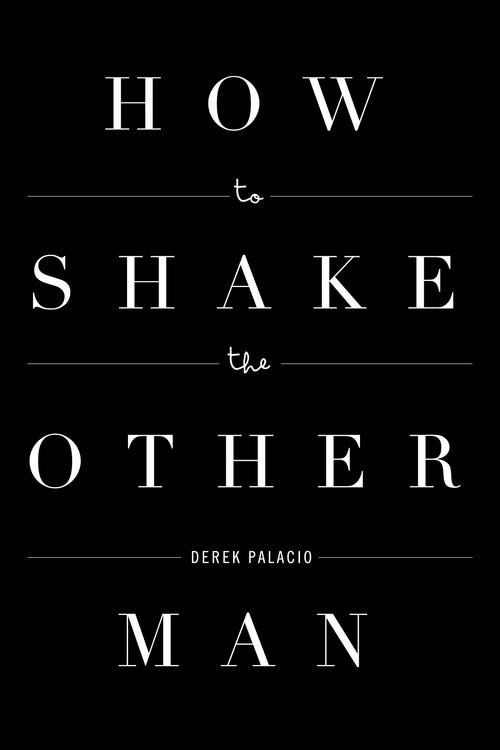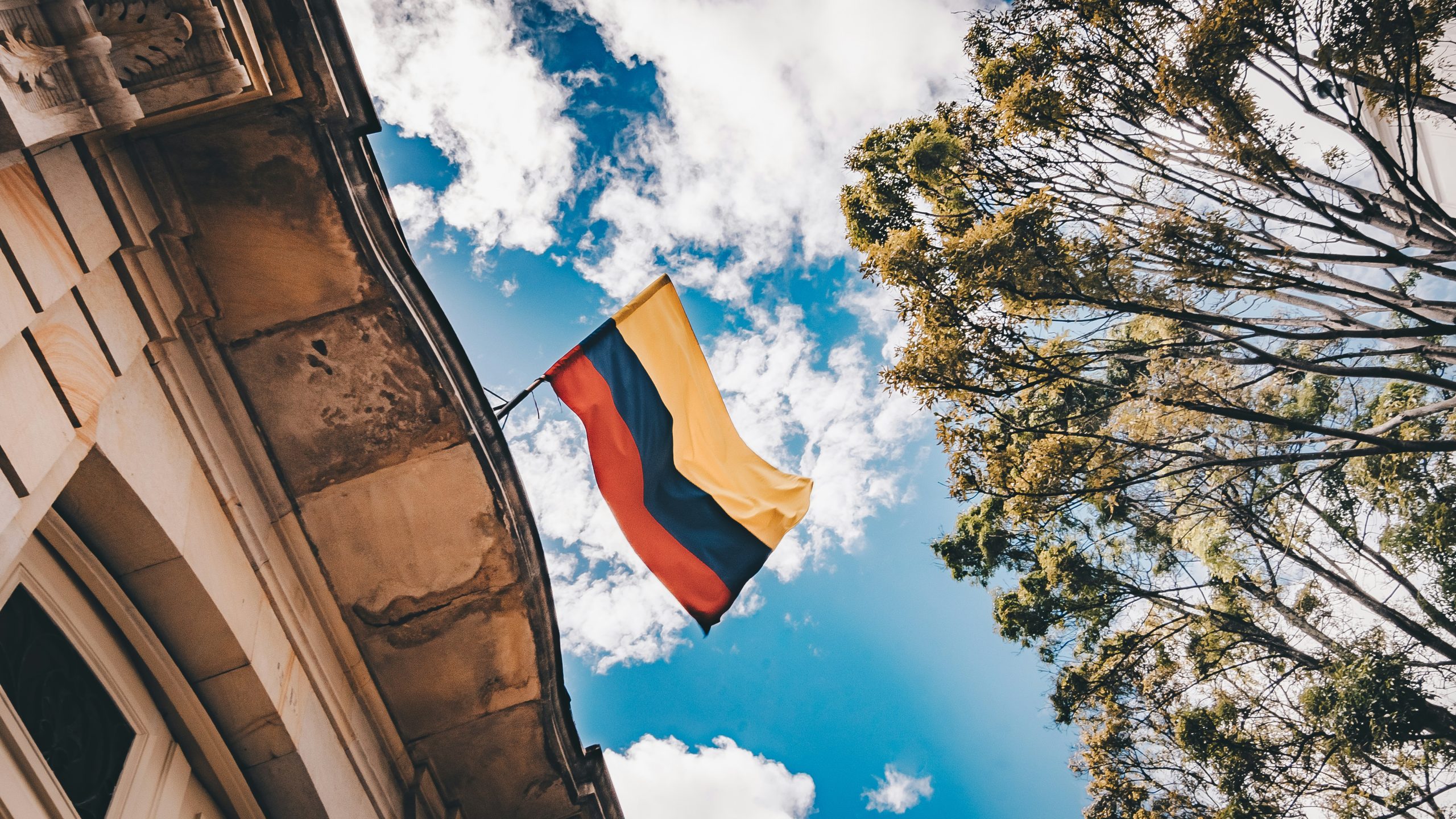Lit Mags
How to Shake the Other Man
by Derek Palacio, recommended by Nouvella

EDITOR’S NOTE by Deena Drewis
Derek Palacio’s How to Shake the Other Man is Nouvella’s fourth title and a benchmark for the press — it’s the first title we’ve pulled out of the slush as opposed to us seeking out authors we’ve come across in other publications.

The manuscript initially passed through one our readers, and our online submission tracker shows that he flagged it, then unflagged it, then reflagged it weeks later. It is a challenging story. I understand, objectively, why the reader gave pause.
The novella follows Javier, a Dominican prostitute who is taken in by Marcel, a boisterous Cuban-American entrepreneur with a legion of street coffee vendors. What develops between them is fast and fraught. Anxious to get Javier to stay put, Marcel enlists his brother Oscar, a boxing trainer, to start training Javi. But when Marcel is murdered on the street one day, and Javi and Oscar are bereft of the man that united them, they are forced to assess what they owe one and other and how they will face the void that awaits them.
There is little lightheartedness in this novella; it is violent and unrelenting. This story is going to be off-putting to some people. Perhaps many people. But it’s one of the most affecting stories I’ve read; it bruises you, burdens you with these variations of love that are cut short and left with no place to go.
What I tell people about Derek’s writing is this: The world he inhabits in his fiction is so stunningly realized, the intimacy between the author and his characters so palpable, that you will assume you know quite a bit about him, because there’s no way he can be fabricating this reality out of experiences that are not his own. (And you will be wrong about this.)
I wasn’t familiar with Derek’s writing prior to reading his submission, and unless you subscribe to the Kenyon Review and happened to have read his phenomenal story “Sugarcane” (which will be appearing in the 2013 O. Henry Prize Stories) or Puerto Del Sol, which published his contest winner, “A History of Civility,” you wouldn’t have read any of his work either. Derek is not on Facebook or Twitter; he is kind of difficult to Google. He found Nouvella by way of Duotrope — his submission was as cold as it gets.
In these months before the novella is released, I’ve come to think of a good book as the result of several serendipitous events coming together at an opportune moment. I am lucky to be publishing a book as good as How to Shake the Other Man. I hope you’ll read this excerpt and then the rest of this remarkable debut when it is released on May 14th. I’ve had the opportunity to read portions of the manuscript for his story collection and novel in progress, and can tell you this much: Derek won’t be able to keep a low profile for very much longer.
Deena Drewis
Founder and Editor of Nouvella
How to Shake the Other Man
Derek Palacio
Share article

THERE IS ONLY A MINUTE OR SO LEFT IN THE MATCH, Javi is certain, but he has never sparred for this long before, a full extra round three days before his first fight. He wonders if Oscar is still watching him or if he has gone to check his books or instruct the other fighters, or maybe even inspect the equipment. Oscar has been circling the gym nonstop since Marcel’s shooting ten days ago. It’s still not clear what happened. Gunshots and two bodies: one Marcel’s, the other, one of his coffee vendors. Javi thinks the not knowing is Oscar’s reason for pacing his mats. The man stands still long enough and the whole world hits him. Better to keep moving. Better to keep ducking the punch. Which is all Javi can manage to do right now. He long ago gave up trying to beat his partner, a better fighter than Javi, which had been Oscar’s intent.
“You won’t learn anything stepping on chickadees,” he told Javi this morning. “Got to peck a rooster if you want to take down the henhouse.”
Bob and weave, duck and block, bob and weave — like a sinking ship that won’t make up its mind, Javi thinks, and he tries a left jab. But he doesn’t cover up, and his partner finds his ribcage, puts a hurt on his lung. Javi damn near spits out his mouth guard, but grits his teeth instead. He finds a rope and does his best not to fall over. It will throb tomorrow and probably Thursday as well. It will be hard to breath without grabbing his side. The skin will bruise and he will see it in the mirror. He will come back to this moment in the morning.
If Marcel could still talk, there would be a way to forget about it. There would be a cold pack next to Javi on the couch. There would be saucers waiting for shots of espresso on the coffee table in the living room. There would be Bebo Valdés on the tape player whipping along some ancient big band. There would be Marcel in the cocina mincing pork with spice and lard, rolling the mixture into silk-thin dough, and shoving the empanadas into the oven for twenty minutes, those minutes spent checking and touching Javi’s bruise, circling it with a cube of ice.
“What did Oscar say?” Marcel asked once after finding a bruise the size of a grapefruit on Javi’s left bicep.
“Nothing. He flicked it actually. Maybe said something about stretching the arm before icing it.”
“He said nothing else? Just ice?”
“And stretching. He isn’t like you. He doesn’t come running when I stub my toe. He’s got other fighters, you know? He can’t watch over Muchi’s boy all day long.”
“He flicked you in the arm? Like this?” and Marcel poked him where it hurt. Javi jumped, but Marcel pushed him back down onto the couch. He struggled, but Marcel had him by the shoulder.
“Hombre here needs to toughen up. No wonder Oscar didn’t say anything — didn’t want to muss your feathers. Probably thought you would break if he did.”
“I knocked the other guy on his ass!” Javi almost screamed. He struggled but knew Marcel wouldn’t let him up. “You should see his face! My arm got nothing on his face!”
Marcel squeezed Javi’s shoulder hard and his grin went away. Javi could feel Marcel’s big fingers dig into his muscles, could sense tenderness in the way they pressed into his skin without hurting him.
“I am only concerned with your face, pretty boy,” and Marcel put his other hand in Javi’s still damp hair and combed it to the side with his fingers. “Don’t let them fuck with this face.” he looked over Javi’s face, and after a moment asked, “You really liking the boxing?”
“It’s all right.”
Marcel pinched his ear and went into the kitchen to check the empanadas. On the couch Javi massaged the skin around his bruise and listened as Marcel slid the baking tray out of the oven. There would be four empanadas, two for each of them, but Marcel would only eat one and then force Javi to take the other three. Protein for el matador.
From the kitchen, “Oscar tells me you’re quick.”
“He tells me I dance in the ring.”
“So? Ali would float like a fucking insect — why can’t you dance?”
“It wastes energy.”
“What does he want you to do? Stand still and get hit?”
“He says bounce from foot to foot, not side to side.”
Marcel walked out of the kitchen with the empanadas on a plate with two forks. He gave the plate to Javi and sat down on the coffee table across from him. He watched Javi spear the first empanada.
“Oscar knows what he’s telling you,” Marcel said. “He ended careers when he was your age.”
“I know, I know. I just don’t like standing still. Why not move till the other guy gets tired and then get in his face? Everyone there knows they can beat me, so why not let them chase me for a little bit?”
Marcel smiled, but just barely. He took the plate from Javi and cut a corner off of the second empanada with the edge of his fork. Bringing the crust to his mouth, Marcel looked at Javi and asked him, “You thinking of quitting on Oscar?”
Javi watched him chew, his lips pressed tight, no crumbs around his mouth, no flakes catching in his stubble. Javi liked it when Marcel ate because it was the only time he was quiet. It was a different face from when Marcel chattered, and Javi thought his eyes stood out when his teeth were hidden. Big and brown and slow moving, as if they already knew what they were going to see, so there was no rush in seeing it. Javi knew what Marcel was asking, even so much younger than the well-kept coffee entrepreneur, even tired, hungry for more meat pies and sweat still darkening the fabric of his t-shirt.
“No, I will not give up on Oscar,” Javi said, and Marcel’s brown eyes moved just a tiny bit. “Not yet.” And when Marcel started to grin, “He is too good of a coach.”
“All right,” Marcel said, nodding. He smiled slow and showed his teeth. He licked them bare. Javi thought, and now he will kiss me. But Marcel just gave him the plate of empanadas, and the indifferent gesture reminded Javi of his father. He’d not gone after his wife when she ran off, perhaps too afraid he’d never make it back to the States or the shitty garage he co-ran with another Dominican up on Willet’s Point. More likely he’d begun to believe all the things he’d spent over a decade telling Javi: This is where we live now. This home. There’s no going back. There’s nothing back there but being broke and dying early. He wasn’t as vocal, though, after Javi’s mother was gone; he just worked longer days, filled the hours he used to spend with her with oil changes, rickety suspensions and loose ball bearings. He got over the empty space in his bed by never touching it, by sleeping five hours a night and always facing the window in the bedroom. He took her departure as a fact of life, something to adjust to but never look back on. Drank it down like a cup of cold coffee.
“Finish these,” Marcel said. “I need some café.”
He was gruff like his father, too. Wouldn’t say what he wanted but would act it out like the goddamn Verbena de Navidad; all theatrics and histrionic bullshit instead of straight shouting. Javi knew Marcel wasn’t like that with anyone else, and neither was Javi’s father. It made Javi think he had something on these men, or in the case of his father, used to have something. He remembered how long it took the man to ask him where he went all night, why he wasn’t pulling longer hours at the shop. He was eighteen then, done with school and supposedly a grown-ass human. His father wanted to know where Javi was getting his money from. His hands, his father said, were real pretty, and by this of course he meant two things. Javi wondered how much he’d figured out, how long it took him to really see, and whether or not he would have ever said something outright. Probably not, and the fact made Javi’s head hurt, because it meant when he left, when he stopped going home, sick as he was of his father’s tired looks, his crumpled hands and gasoline smell, Javi was still wanted to more than not.
Javi wondered also what Oscar had been telling Marcel. He and Oscar didn’t talk much at the gym after workouts, when they swept the floors side by side or wiped down the leather ropes of the ring, one following the other like a shadow around the platform. During training Oscar only spoke of what pertained to boxing, and even that was limited to the moment: “Step with your front foot;” “Drop your left and cover your ribs;” “Jump over the goddamn rope! Don’t just step over it.” Never anything about the next day or when the next sparring session would be or what Oscar saw for Javi down the line. Nothing about Javi as a future fighter.
Maybe Oscar had seen something in Javi’s restless feet. Maybe he’d said something to Marcel in his back office about Javi being some cagey fighter who looked as though he could jump the ropes any second. Those things were true, and if Oscar had said them to Javi’s face he would not have denied them. He was restless. He did have some itch to move, some feeling of flight working his legs every day. He’d gotten tired of Queens, its streets, its bitter winter and men. He’d gotten sick of cologne and condoms, of dirty sedans and hourly rates. He’d gotten sad with walking home in the dark with a small weight in his pocket that seemed to pull him closer to the pavement. He hated knowing how many blocks he was from his father’s shop, how many extra miles he’d walked to go around Xenia Street in Corona just to avoid seeing the bent-over man. Something like seven years since Javi had last lain eyes on his father. Just the same, he had no grander plans, only a small box of endless twenties he kept in a bureau in his studio apartment. Just the cash and the foolish notion that somewhere else might be bigger, fuller than New York. Javi knew Marcel was teaching him how to stay, tethering him to a stubborn heart.
“Marcel,” he called lightly.
“What, pretty face?”
“How come you left Miami?”
Marcel came in from the kitchen with a pair of clean white coffee cups on saucers.
“What?”
“Why did you leave Miami?
Marcel slid one coffee cup onto the table and took the other one with him to the tan armchair across from the couch. He sat down slowly, and then made a show of blowing away the steam rising from his cup. He looked at Javier.
“Because,” he said, “it was too hot.”
“Bullshit.”
“Ha! You don’t believe me? You’ve never been in the swamplands of Hialeah come August, man. You do your little jog around the ring and pretend you know what sweat is, but you don’t have a goddamn clue.”
“Fuck you. I don’t see thousands of cubanos running north for the snow.”
Holding his cup and saucer in one hand, Marcel brought his hand to his face and rubbed his chin. He touched his cheekbone and rubbed the tender spot just below his left eye.
“No joke,” Javi said.
“Oye, Javi, it was too hot. You misunderstand me.” A pause. “It was so damn hot you couldn’t get close to a body.”
Javi waited only a moment before asking, “Whose body?”
“Just a boy’s,” Marcel said waving his hand across his face as if dusting for flies. “Just a boy from school.”
“Did he break your heart?” Javi asked, and he was surprised by how sincere he sounded, by how much he wanted to know.
“No, Javi. But his older brothers damn near broke my face.”
A blank moment passed, and after it Javi could only think about how he had never taken care of another person beside himself. He could only think about how young he was, how much older beautiful Marcel was.
“Then my mother knew. She was angry, and I couldn’t get to the boy. The brothers. Everyone was angry.”
Marcel stopped and sipped his drink.
“When people are pissed, Javier, when they can’t let go of things, the air around them — it heats up. Hialeah was already a burning suburb, but after that, just too damn hot.” And Marcel swallowed more coffee, the steam lifting over his eyes.
Falling asleep beside Marcel hours later, Javi had thought of the word “exile,” of a man driven out. Driven north by the heat. Long after Marcel’s chest found a sturdy rhythm, Javi lie awake wondering if he was weak. The city was both hot and cold, and what had he gotten that he hadn’t asked for? He’d given himself out for years, and somehow he’d gotten Marcel. Javi had pushed his face into the big man’s back and breathed in his luck.
But now, his head on fire and locked inside a leather headpiece, Javi wonders if he is wasting his legs inside the ring. His reason to stay in the city bled out on the street ten days ago, and isn’t that why people leave the places they’re from? Because they eventually know everything about them? Because they know how hot August is, who has lived on what corner, who has died in what gutter? His being gone is a force, Javi thinks, his tired hands barely covering his face. The other man still swings, but he doesn’t care. Javi doesn’t want to dance anymore. He wants to run.








